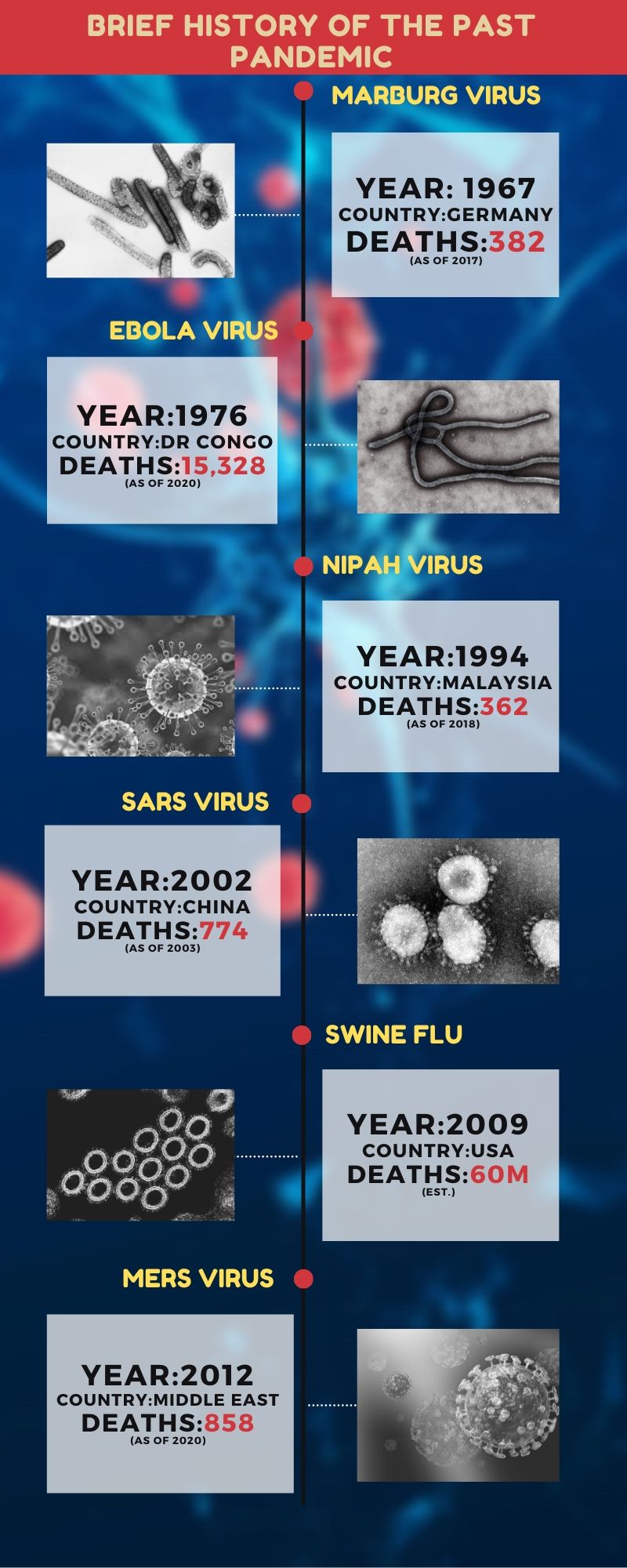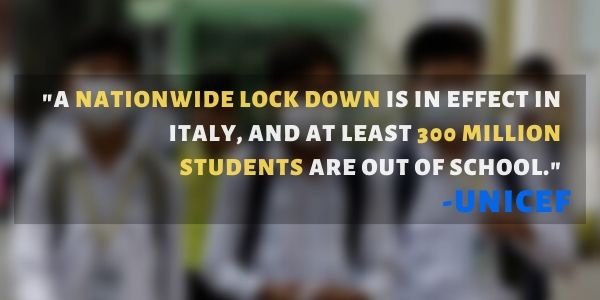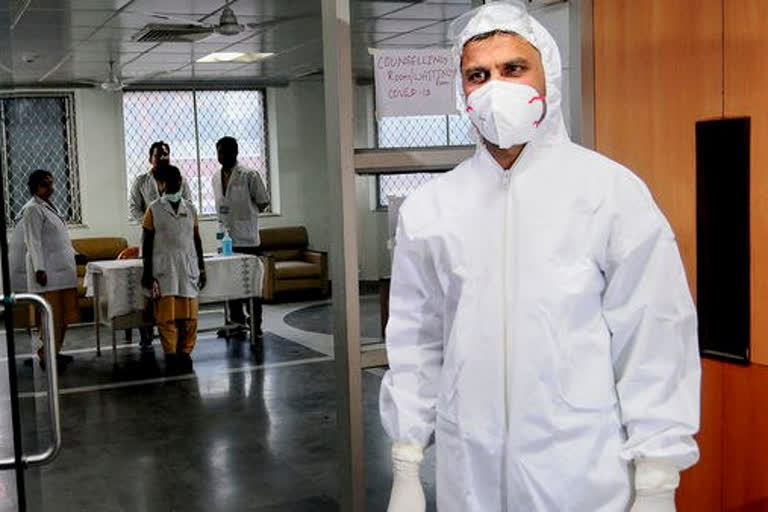Hyderabad: In some parts of Italy, the government had issued imprisonment orders against people who refused to abide by quarantine. Governments issue such orders only in extraordinary circumstances of communal or religious conflicts. But this is the first time that the Italian government has issued directives for a complete lockdown with the aim of protecting its citizens from Coronavirus.
The novel Coronavirus is creating panic across the world. Tourism has collapsed in several nations. Livelihoods have come to a halt. In some countries, people are refusing to leave their homes unless it is an emergency. The virus came to the fore in China’s Wuhan province two months ago and thereafter has infected many nations across the globe. World Health Organization (WHO) is in utter shock following the rapid outbreak of the virus.
On January 30, the WHO had declared the virus outbreak as a Public Health Emergency of International Concern. WHO has initiated rapid control measures in the wake of a rampant virus widespread. To date, the organization trained 1.30 lakh medical professionals through online courses in seven languages about virus prevention measures. Despite the coordination measures by leaders of several countries, there are no significant results.
The number of people infected with the virus is increasing day by day. The virus outbreak is on the upward trend. There is panic among the people. The death toll is rising in many countries including China. The public is worried about this unpredictable state. The virus has already spread to 109 countries worldwide. It is estimated that the nation which can respond in time to the outbreak and take preventive measures, is the most responsible. If a nation fails to provide adequate medical care, the risk of further deterioration in the situation cannot be ruled out. It is high time the nations work in coordination with the WHO, take responsibility in providing immediate medical assistance, and rescue the infected.
Even the slightest of negligence in providing medical care can worsen the existing critical situation. There were more than 3,850 Coronavirus deaths worldwide. Out of these, 3,120 deaths were in China alone. 366 in Italy and 237 in Iran have died from Corona infection. The number of infected people has crossed 1.11 lakhs in China. The Chinese government has built a 1000-bed hospital to treat the Corona victims and quarantined Wuhan province.
Over the past 50 years, several viral outbreaks have disturbed the lives of people. Marburg Virus in 1967, Ebola in 1976, Hera and Bird Flu in 1994, Niphan in 1998, SARS in 2002, Swine Flu in 2009, MERS in 2012 and Bird Flu in 2013 have infected the population. Around 762.6 crore people have been infected with these viruses worldwide. The Swine Flu that occurred in 2009 killed several people.

Seven years since the Bird Flu epidemic, Coronavirus has plagued the world, causing people to panic. As a result, the financial sector is collapsing. The virus is quickly spreading to Italy, Iran, South Korea, France, Japan, Australia and UAE. People are afraid to commute in public places on the instructions of officials. In some areas, the governments had to door deliver food to its citizens. Several nations have imposed import bans on Chinese goods. The pharmaceutical industry is also impacted by the restrictions on raw drug imports. Tourism is heavily impacted by the slowdown in public travel. There are fears that the hospitality industry will collapse.
Health inspections in airports have been made mandatory. Sanctions have been imposed on conferences, meetings and sports events. The US was shocked to learn that two people among those who attended the Conservative Political Action Conference held in Washington from 26th to 29th February, were infected by Coronavirus. President Trump was also in attendance. This instance proved how scary the virus outbreak is.
According to the International Air Transport Association, the COVID-19 outbreak caused a USD 11,300 crore loss. If such heavy losses occurred in the aviation industry alone, the future consequences seem worrisome. The virus outbreak has negatively impacted the manufacturing industry also. Products are stuck in the factories. Workers and employees are facing difficulties as a result of factory shutdowns. The middlemen and brokers took undue advantage of this situation. The prices of protective masks have skyrocketed. The WHO revealed that medical personnel are also facing a shortage of masks. It suggested that their products must be in line with the demand. The WHO has come forward to help countries infected with COVID-19. It started fundraising campaigns in various countries. The World Bank has committed USD 12 billion in aid for developing countries grappling with the spread of Coronavirus. All the countries are pooling funds to battle the pandemic.
While the virus is causing turbulence in several nations, the situation is still under control in India. Till now, 73 people have been tested positive for COVID-19 in India. Since the health condition of the remaining patients is stable, there is no cause for worry. Preliminary health checks were conducted for six lakh overseas travellers to India. As the infected people are being treated on priority, there is no immediate threat. But the government should leave its laidback attitude. Officials need to be more vigilant than ever. Andhra Pradesh and Telangana were on high alert after a techie travelling to Hyderabad from the US was infected with Coronavirus. The state governments took precautionary measures. Citizens were alerted through social media. Officials should act responsibly instead of misusing the funds allocated to battle the virus. The necessary equipment should be provided to medical institutions to deal with the pandemic. Sophisticated research centers must be made available. The public must be made aware of the precautionary measures. Most of the threats can be controlled if medical professionals and government officials put coordinated efforts.
The COVID-19 outbreak is negatively impacting education too. UNICEF expressed concern over this scenario. According to a recent report by the UNICEF, about 30 crore students in 22 countries worldwide stopped going to school. Governments in 13 nations have officially declared holidays to educational institutions until March 15. The remaining 9 countries have declared holidays in affected areas. More than 23 crore students in China have quit going to school.

The UNESCO suggested creating alternative distance learning courses to prevent this shutdown from impacting the studies. This arrangement is possible in areas with good internet connectivity. But there are several remote areas with lack of basic amenities. In such areas, the potential for disruptions to the education of particularly poor students is high. On the other hand, there is a chance of deterioration in health among students hailing from poorer backgrounds. This is because several countries have a mid-day meal scheme in schools similar to India. In many countries, poor students rely on food provided in schools. The shutdown of schools means depriving such students of education and health!
Also read: Coronavirus: Govt to send 3 planes to Iran to bring back stranded Indians



